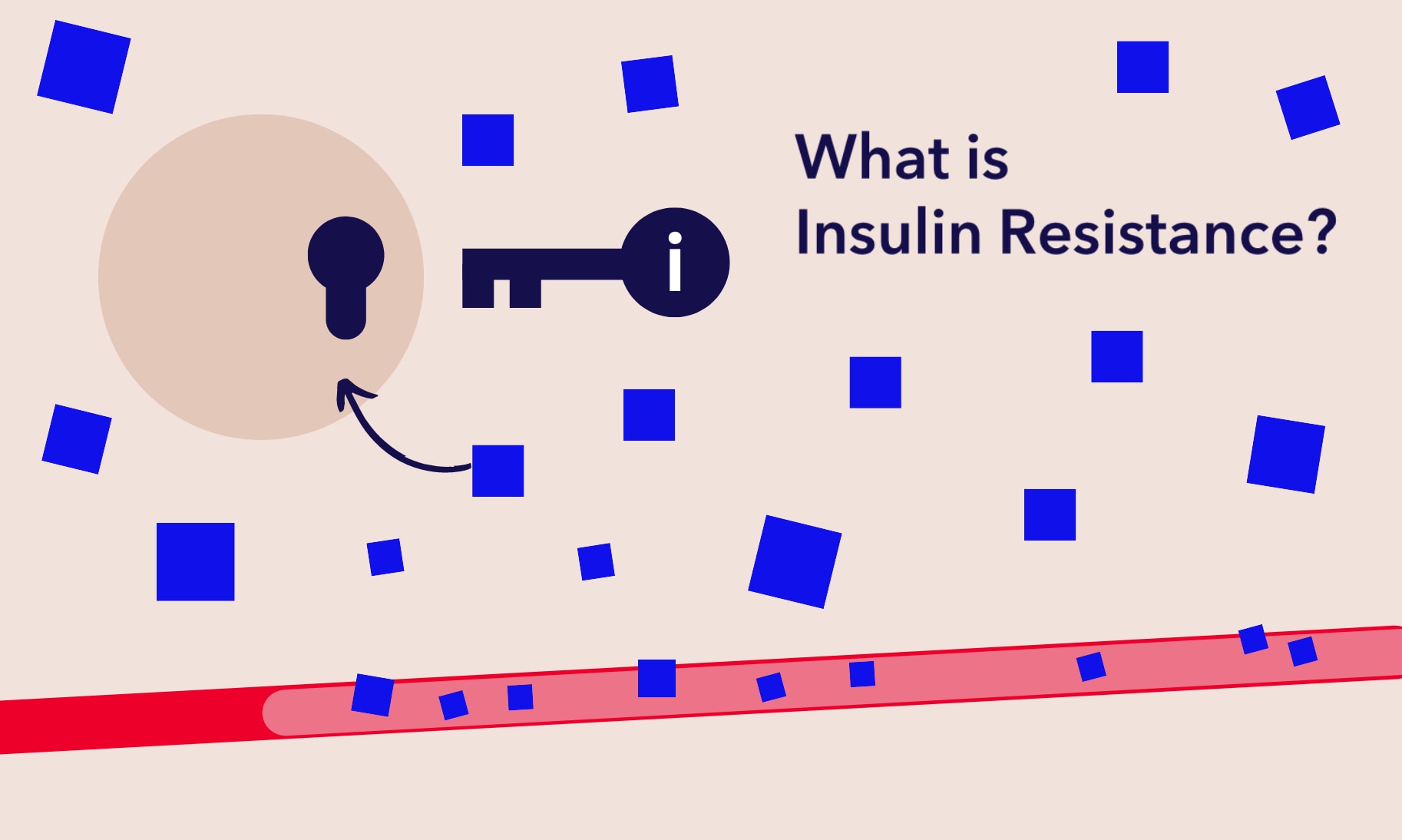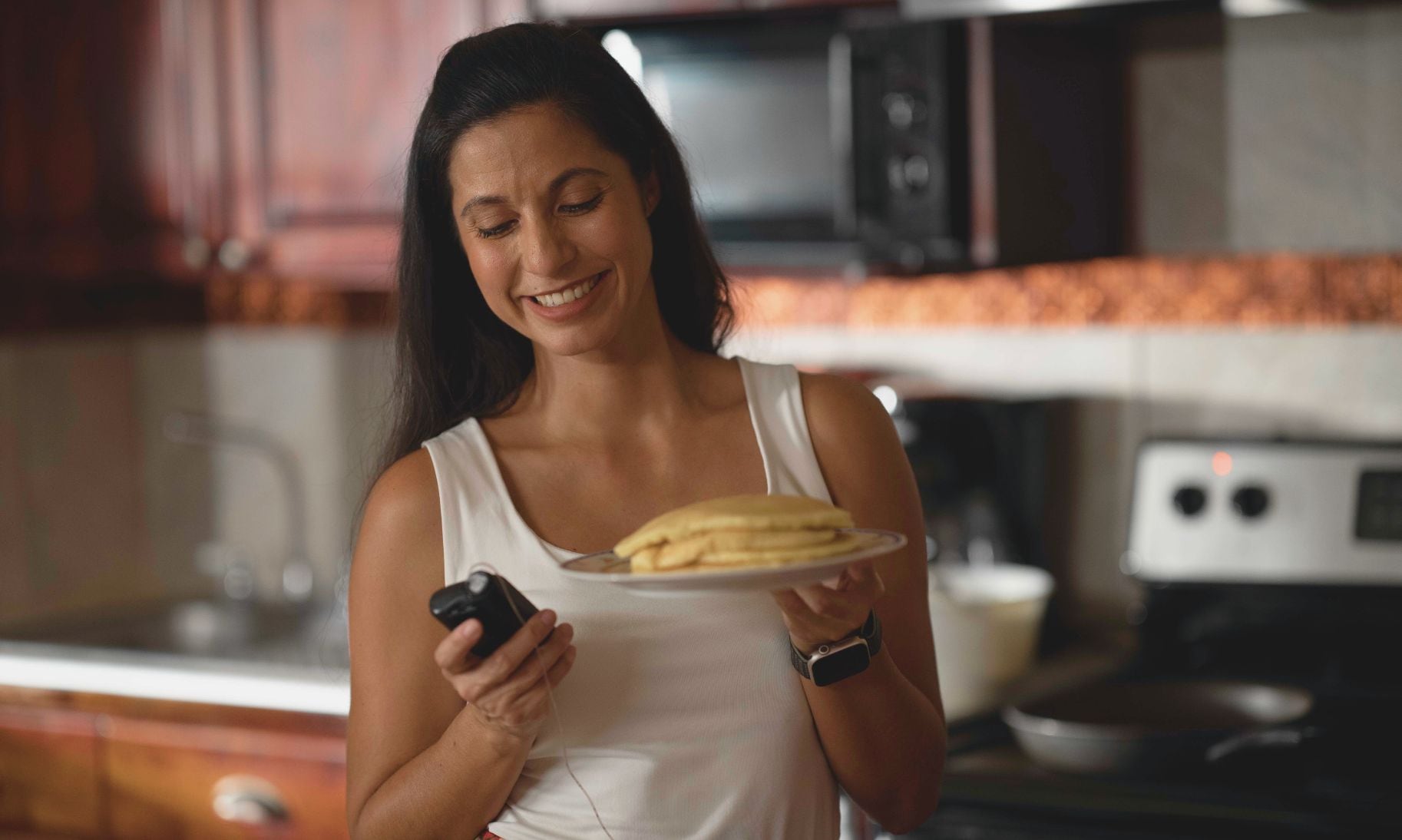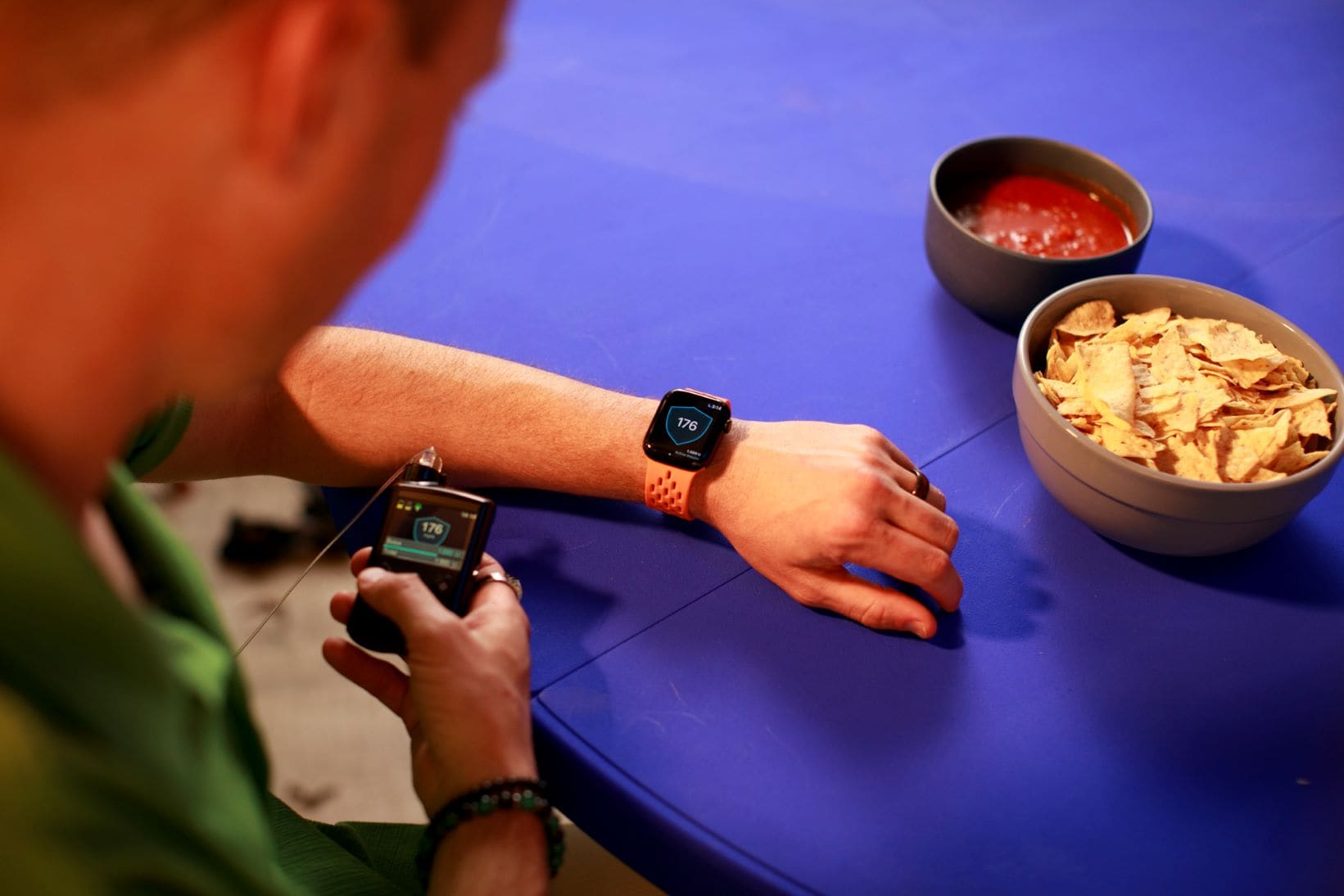What is insulin resistance?

What is insulin resistance?
Insulin resistance is a condition when your body doesn’t respond normally to insulin and can’t easily process sugar in your blood. This causes your pancreas to produce even more insulin to compensate.1
When discussing diabetes management with your healthcare provider, insulin resistance is commonly mentioned. That’s why it’s important to understand what this is and how to manage it. Due to the decreased ability of insulin to help with controlling sugar levels, more insulin is needed to help the uptick of sugar in the muscle and liver.
How resistance occurs
Insulin is a vital hormone since it helps to transport glucose (sugar) from the bloodstream into cells to produce energy. People with diabetes often wonder what causes their bodies to become resistant to insulin.

Several factors and conditions can cause varying degrees of it. Scientists believe that excess body fat, especially around your belly, and physical inactivity are the two main contributing factors to insulin resistance.2 Of course, these are common causes, but they do not always mean you will have insulin resistance because of them. Both awareness and being able to identify the symptoms is important.
Symptoms of insulin resistance
If you have insulin resistance, but your pancreas can increase insulin production to keep your blood sugar levels in range, you won’t have any symptoms. However, over time, it can get worse, and the cells in your pancreas that make insulin can wear out.
Eventually, your pancreas is no longer able to produce enough insulin to overcome the resistance, leading to elevated blood sugar (hyperglycemia), which does cause symptoms.
 Hyperglycemia is high blood sugar. The American Diabetes Association suggests these targets for nonpregnant adults with diabetes. Post meals should be less than 180 mg/dL.
Hyperglycemia is high blood sugar. The American Diabetes Association suggests these targets for nonpregnant adults with diabetes. Post meals should be less than 180 mg/dL.
Symptoms of high blood sugar include3:
- Increased thirst
- Frequent urination (peeing)
- Increased hunger
- Blurred vision
- Headaches
- Vaginal and skin infections
- Slow-healing cuts and sores
If you notice any of these symptoms, it is advised to call your healthcare provider (HCP) to discuss further.
In some situations, insulin resistance and high blood sugar can indicate early stages of prediabetes or possibly other conditions that need further evaluation by an HCP. It’s important to be proactive in following up with your medical team for early diagnosis and treatment.
Diagnosis and testing
Your healthcare provider may order the following blood tests to diagnose insulin resistance and/or prediabetes or diabetes:
-
Glucose. A fasting plasma glucose (FPG) or a glucose tolerance test (GTT) may be used to screen for, diagnose and/or monitor prediabetes, type 2 diabetes, or gestational diabetes.
-
Glycated hemoglobin A1c. This test reveals your average blood glucose levels over the past three months.
-
Lipid panel. This is a group of tests that measure specific lipids in your blood, such as total cholesterol, LDL cholesterol, HDL cholesterol and triglycerides.
Your healthcare provider may also order tests that can help diagnose other conditions that are associated with insulin resistance, such as metabolic syndrome, cardiovascular disease, and polycystic ovary syndrome (PCOS). If your healthcare team diagnoses insulin resistance, there are multiple treatment options.
Treatment and management
Healthy lifestyle changes can help in the treatment. Many of these changes help benefit overall health as well.
One of the most impactful things you can do to help increase your insulin sensitivity is to incorporate physical activity into your day. Exercise may lead to weight loss, especially in those who are overweight. In turn, this can increase insulin sensitivity and decrease insulin resistance. There are many options in the treatment of insulin resistance that should be reviewed with your HCP to see what is best for you.
Takeaway
When detected early, insulin resistance can be successfully managed with the help of your healthcare team. Lifestyle choices such as incorporating physical activity and healthy food choices can help.
The key is to pay attention to the signs and symptoms your body gives you. The earlier this happens and the sooner you bring it to the attention of your HCP, the better!
Guest author: Heather Cunningham, MS, RD, CDCES, Medtronic Employee
References:



